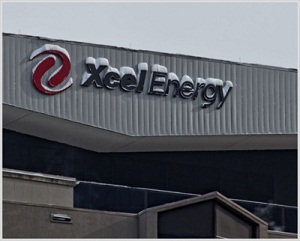Xcel Energy reduces solar rebate program in Colorado
 Xcel Energy cited lower cost solar panels and increased popularity and demand when it announced that it would reduce payouts for its Solar Rewards Program in Colorado on Wednesday.
Xcel Energy cited lower cost solar panels and increased popularity and demand when it announced that it would reduce payouts for its Solar Rewards Program in Colorado on Wednesday.
Its rewards program, which previously paid $2.35 per kilowatt hour of installed solar will, effective almost immediately, pay out $2.01, according to an Xcel press release.
“The growth has just outpaced what we can ratchet down,” said Xcel spokeswoman Michelle Aguayo.
Xcel can only collect up to 2 percent of energy premiums from consumers to reinvest in renewable energy, Aguayo said.
“This is what’s out of whack with us,” she said. “So much of that 2 percent is going to Solar Rewards. We need to watch how we’re investing consumer money and diversify our energy portfolio.”
When Xcel made its announcement Wednesday, it said it would accept applications for 3 megawatts of solar installations at the previous incentive rate and received 1.5 million applications between noon and midnight, Aguayo said.
“It shows that this is a very healthy and vibrant industry,” Aguayo said.
The program started in 2006 with the aim of encouraging homeowners and small business owners to install solar. It was designed to offset about half of the cost of the total solar installation, Aguayo said.
But technological advances, lower cost solar panels, and greater federal incentives have resulted in the consumer paying only about 25 percent of the total cost, Aguayo said.
When the program started in 2006, Xcel had about 3.7 megawatts of residential solar energy and spent about $5.1 million in the first year. This year, the company projects it will have 59 megawatts of residential solar and will pay out $97 million in Solar Rewards.
While the utility expects its new incentive level will continue to support industry growth, some are skeptical.
Neal Lurie, executive director of the Colorado Solar Energy Industries Association, told the Denver Post that the move could be extremely damaging to an industry just getting its start.
“This is absolutely devastating to the solar industry,” Lurie told the Post. “No industry can survive this kind of shock.”
In addition to cutting its subsidy to residential solar, the utility is asking the legislature to dial back rebates for solar power, according to the Post article.
“This industry just skyrocketed,” Aguayo said. “And we just can’t keep up.”



